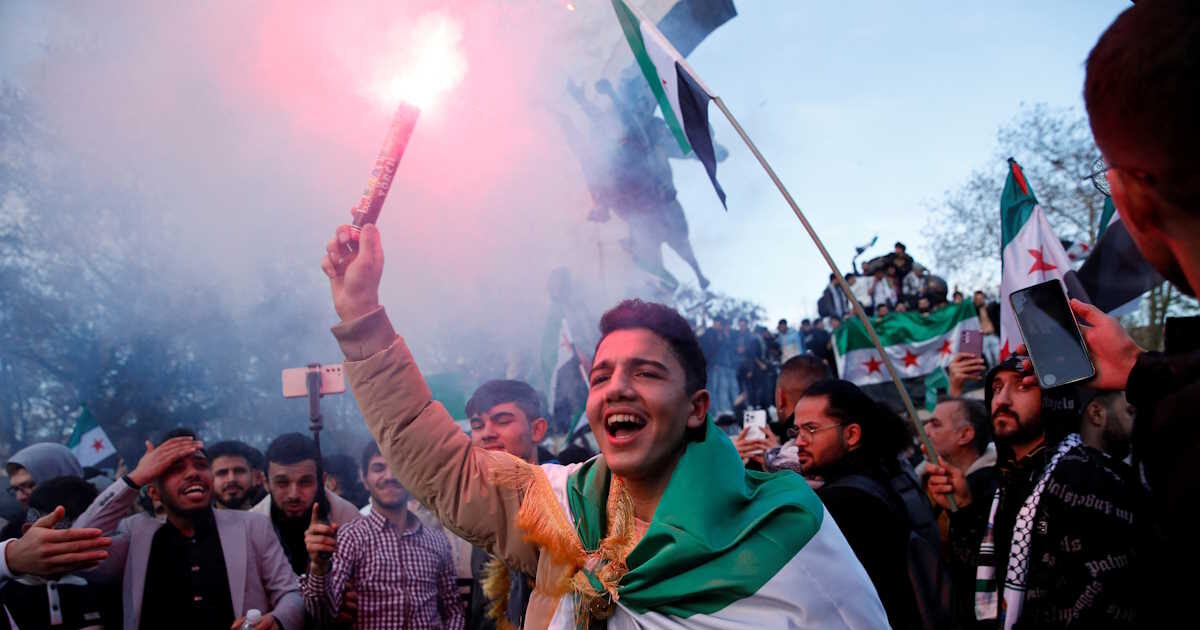Just 10 days were enough for the Islamist rebels to overthrow the Syria a regime of fifty years in power. Damascus fell into their hands and the president Bashar al-Assad he left the country badly, seeking refuge in Vladimir Putin’s Russia.
Emotions in the Syrian capital, Damascus, since the stunning overthrow of Bashar al-Assad are mixed. There had been wild celebrations for the end of the “patriarchal” regime after half a century in power.
Thousands of Syrians took to the streets, chanting “freedom”, removing portraits of Bashar al-Assad and tearing down statues of his father, Hafez al-Assad.
Within hours, jihadist rebels bloodlessly captured the Syrian capital, capping an 11-day blitzkrieg operation against the government army in which they seized dozens of villages and strategic towns and freed thousands of prisoners. Among them and inmates of the notorious Sednaya prison.
With Bashar al-Assad in the arms of Russian leader Vladimir Putin, rebels escorted Syrian Prime Minister Mohammed Ghazi al-Jalali to a hotel for the transfer of power.
Earlier he had declared his willingness to cooperate with the new leadership chosen by the Syrian people. “We are ready to work with any leadership chosen by the Syrian people, providing all possible facilities to ensure a smooth transfer of power,” Jalali stressed.
People celebrated in the streets of Damascus after Syria’s opposition fighters entered the city, toppling the Assad regime and declaring Syria free. pic.twitter.com/Fr7WOpkXmX
— Al Jazeera English (@AJEnglish) December 8, 2024
The scenes of #Bangladesh‘s #JulyRevolution are being revive in #Syria.#Dhaka #JulyMassacre #Damascus #BasharAlAssad pic.twitter.com/GTXeBiQMMP
— Basherkella (@basherkella) December 8, 2024
Syria’s streets are echoing with celebratory gunfire after rebels stormed Damascus, ending the Assad family’s over 50-year rule. The country and region’s future remain uncertain. pic.twitter.com/gghxkth2kq
— DW News (@dwnews) December 8, 2024
On the streets of Damascus, soldiers took off their uniforms, wore civilian clothes and mingled with the crowd, while chaotic scenes unfolded at the airport with dozens of people trying to leave the country.
Hours later, the correspondent of the BBC, the first western media to enter the capital, described the atmosphere in the city center: “Here in the city, you can see cars on the streets, there is traffic, the shops are closed. There aren’t many people around. Some people are afraid, those who supported the regime, those who protected them (the regime), they remain locked in their homes. Others, of course, are happy that the regime fell.”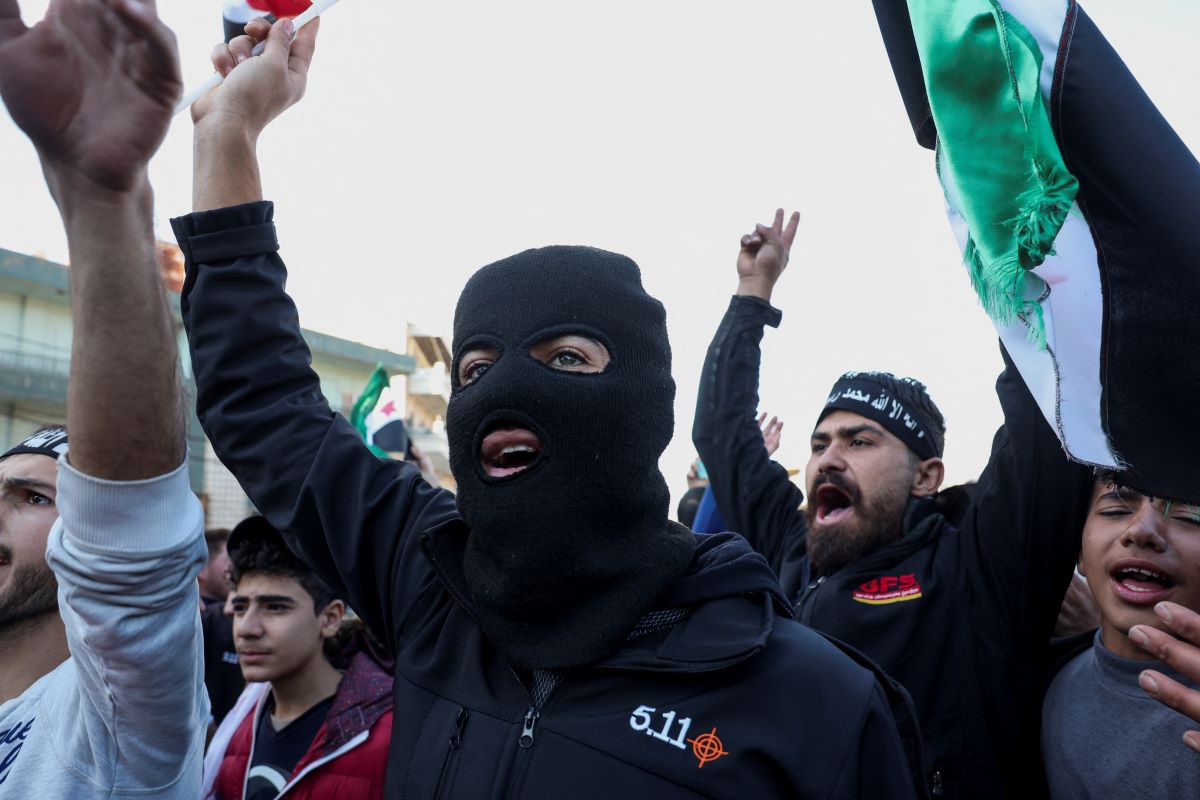
 Photo: Reuters
Photo: Reuters
The infamous Abu Mohammed al-Jolani and… Haqan Fidan
Shortly before the rebels surrounded the capital, the leader of the Islamist organization “Hayat Tahrir Al Sham” (HTS), had announced the fall of Homs, the third largest city in the country: “We are in the final moments of the liberation of the city of Homs… A historic fact that will distinguish the truth from the lie. We call on our brothers in Jihad to show kindness to the civilians, provide security for those who surrendered their weapons and not pursue those who escaped.”
And while the Islamist rebels are talking about a smooth transition of power, angry Syrians attacked the embassy of Iran, a close ally of Assad, in Damascus, causing serious damage. At the same time, Ankara-backed Syrian fighters stormed the northern Syrian city of Manbij, having captured most of the area controlled by US-backed Kurdish forces.
We need a repeat of this scene from the Presidential palace in Damascus. To mark the end of Assad’s rule and the beginning of a new era for a free Syria.#Deterring_aggressionpic.twitter.com/c7HP0c5zXC
— Muslim Daily (@muslimdaily_) December 8, 2024
#WATCH: Images from inside Bashar Assad’s palace in Al-Maliki neighborhood in #Damascus https://t.co/oTYm2iyqeT pic.twitter.com/uLKCzVYT43
— Arab News (@arabnews) December 8, 2024
Besides, the leader of the Syrian rebels, the infamous Abu Mohammed al-Jolani, went on Sunday afternoon (08.12.2024) to the famous Umayyad mosque in Damascus, where he delivered a speech. As he entered the iconic mosque in the Old City of Damascus, the head of the radical Islamist group Hayat Tahrir al-Sham was greeted by crowds shouting “Allahu Akbar” (God is great), according to videos circulating on the internet.
Turkish Foreign Minister Hakan Fidan said the new Syrian government should not pose a threat to its neighbors: “We must be careful in this transition period. We are in contact with the rebel groups to ensure that terrorist organizations, especially ISIS and the PKK, do not take advantage of the situation.”
All necessary measures to prevent the revival of ISIS announced that the US will take, maintaining its presence in eastern Syria, while Donald Trump in his post said that Assad has lost the support of Russia because of the war in Ukraine.
Syrian media reported that the Israeli military carried out airstrikes in Daraa and Sweida in southern Syria, as well as an airbase in the Mazeh district near Damascus. Earlier, Israel warned rebels to stay away from the border, while military forces have been deployed in the neutral zone with Syria.
BREAKING Israel is bombing Damascus the city I was born. They finished off our military defences, so now they are killing children.
And we can thank the Syrian revolution and all the traitors that were birthed from it. pic.twitter.com/e3CEOHFOqk
Israeli forces also launched three airstrikes against a security compound in the Damascus suburb of Kafr Susa and a research center, two sources told Reuters. According to this information, the complex housed the military intelligence service and the customs headquarters. The research center has long been suspected of being used by Iranian scientists to develop long-range guided missiles.
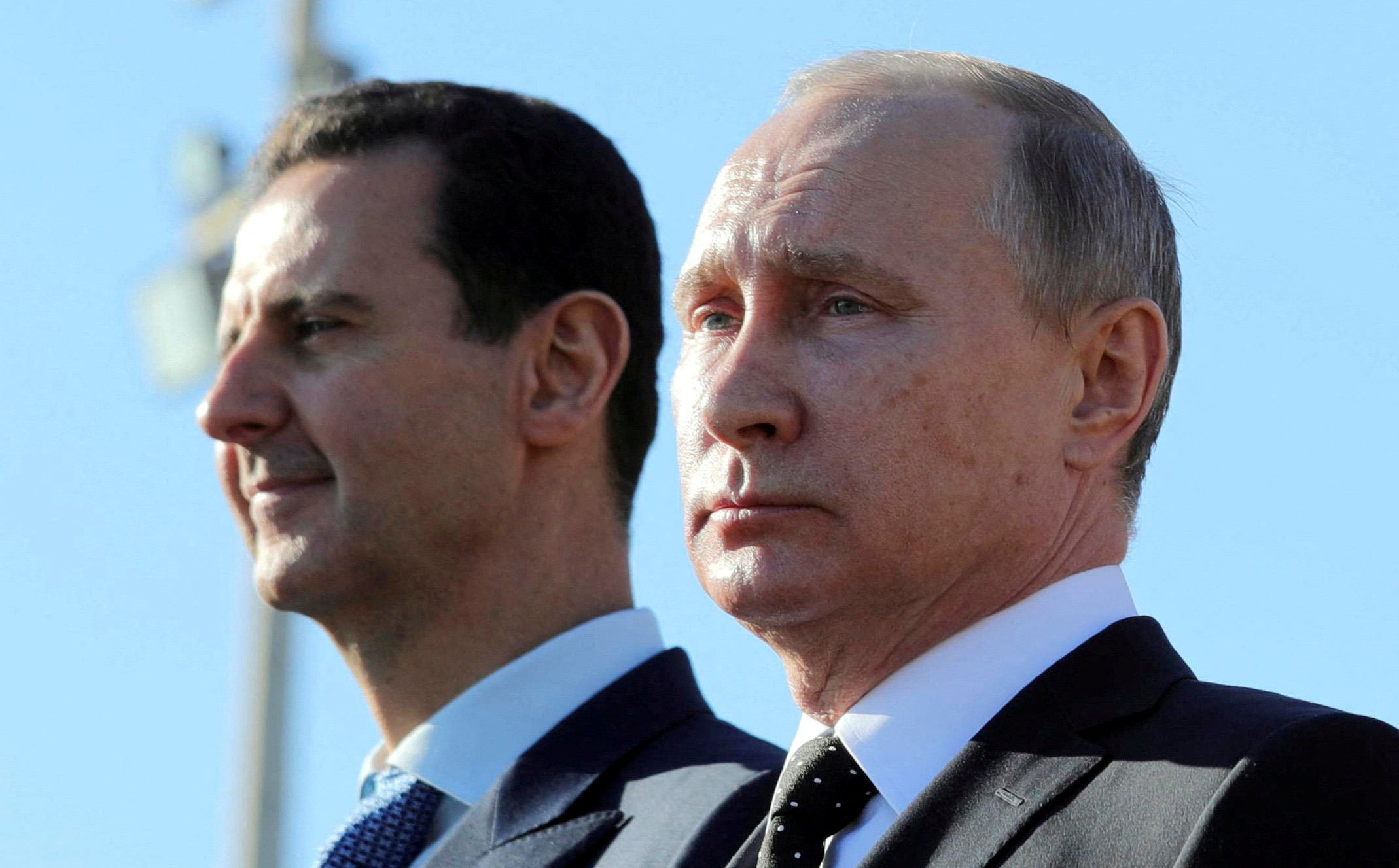

Bashar al-Assad and his family are in Moscow
The deposed president of Syria, Bashar al-Assad, is now in Moscow, with his family near him, the Russian media report.
Citing a Kremlin source, the state-run TASS news agency reported that Assad and his family members have been granted asylum in the Russian capital. “Assad and his family members have arrived in Moscow,” the source told TASS and Ria Novosti news agencies. “Russia granted them asylum on humanitarian grounds,” he added.
At the same time, Russia is asking the UN Security Council to meet on Monday (09.12.2024) for Syria.
There was much speculation about Assad’s whereabouts after reports that he fled Damascus before rebels arrived there this morning. Russia, one of Assad’s closest allies, confirmed earlier on Sunday that he had left Syria, but did not say where he was or whether Moscow had given him sanctuary.
The flight tracking service “FlightRadar 24” recorded a Syrian Airlines plane taking off from the Damascus airport at the time of its capture by the anti-regime forces. It then appears to make a U-turn over the city of Homs and disappear.
A source told CNN that the rebels are interrogating Syrian military and intelligence officials who could be aware of Assad’s movements. At the same time, the diplomatic adviser of the President of the United Arab Emirates avoided answering whether the deposed Syrian president has found refuge in his country.
Video of Assad’s visit to the Kremlin and meeting with Putin last July:
Assad has arrived at the Russian capital of Moscow and met with president Putin pic.twitter.com/RWYRzbuRKX
— Mossad Commentary (@MOSSADil) July 25, 2024
Scenarios abounded for the fate of Bashar al-Assad, who took power in 2000. And despite initial hopes that he would advance democratic reforms in Syria, he largely continued the authoritarian methods of his father Hafez al-Assad, which led in the “Arab Spring”, which developed into a civil war with more than half a million dead and hundreds of thousands displaced persons. Thanks to the support of the Iranians and Russians, he managed to recover two-thirds of the country and have the full support of the army.
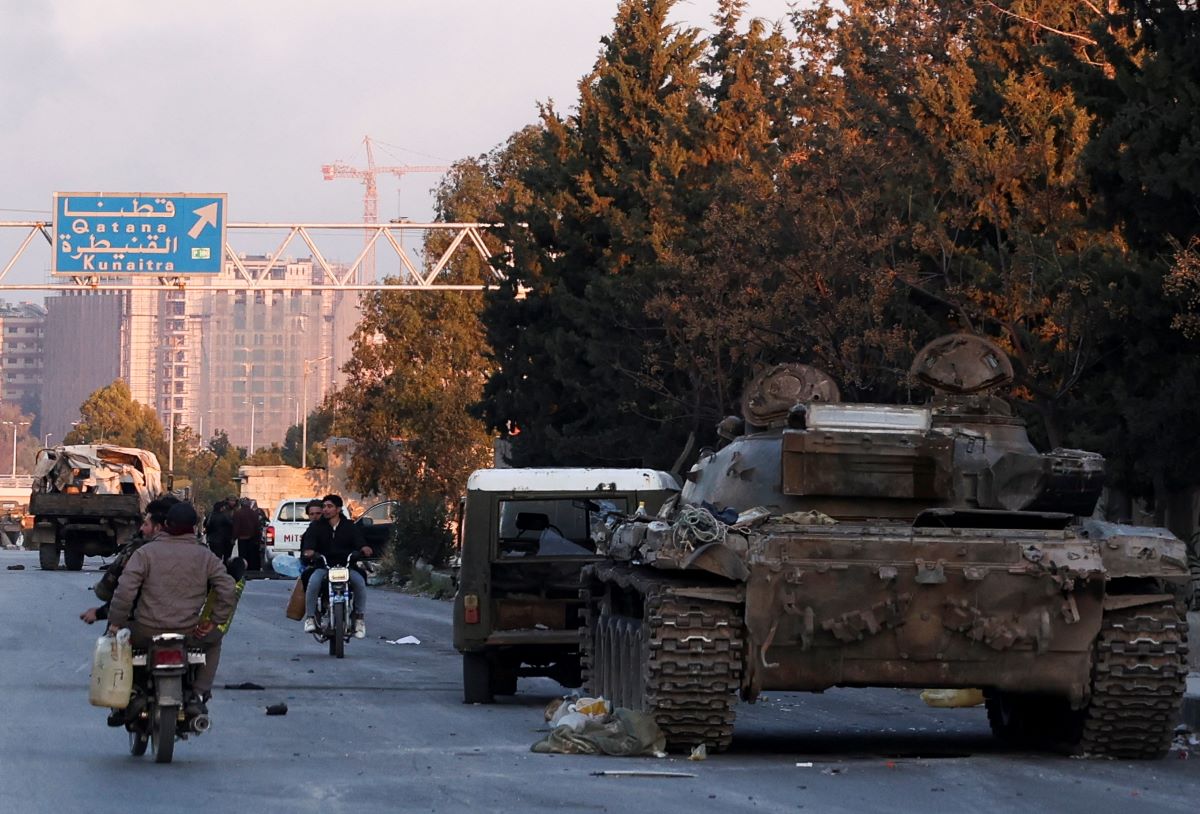

Assad ‘never asked for help’ to fight rebels, Tehran says
Meanwhile, Tehran, through Foreign Minister Abbas Araghchi, said on Sunday that Assad “never asked” for help from Iran, his main backer along with Russia, to counter the rebel offensive.
The Syrian government “never asked us to help” it militarily, Aragchi said speaking on state television, adding that he was “surprised” by the “speed” of the rebel attack and the “inability” of the Syrian army to push it back.
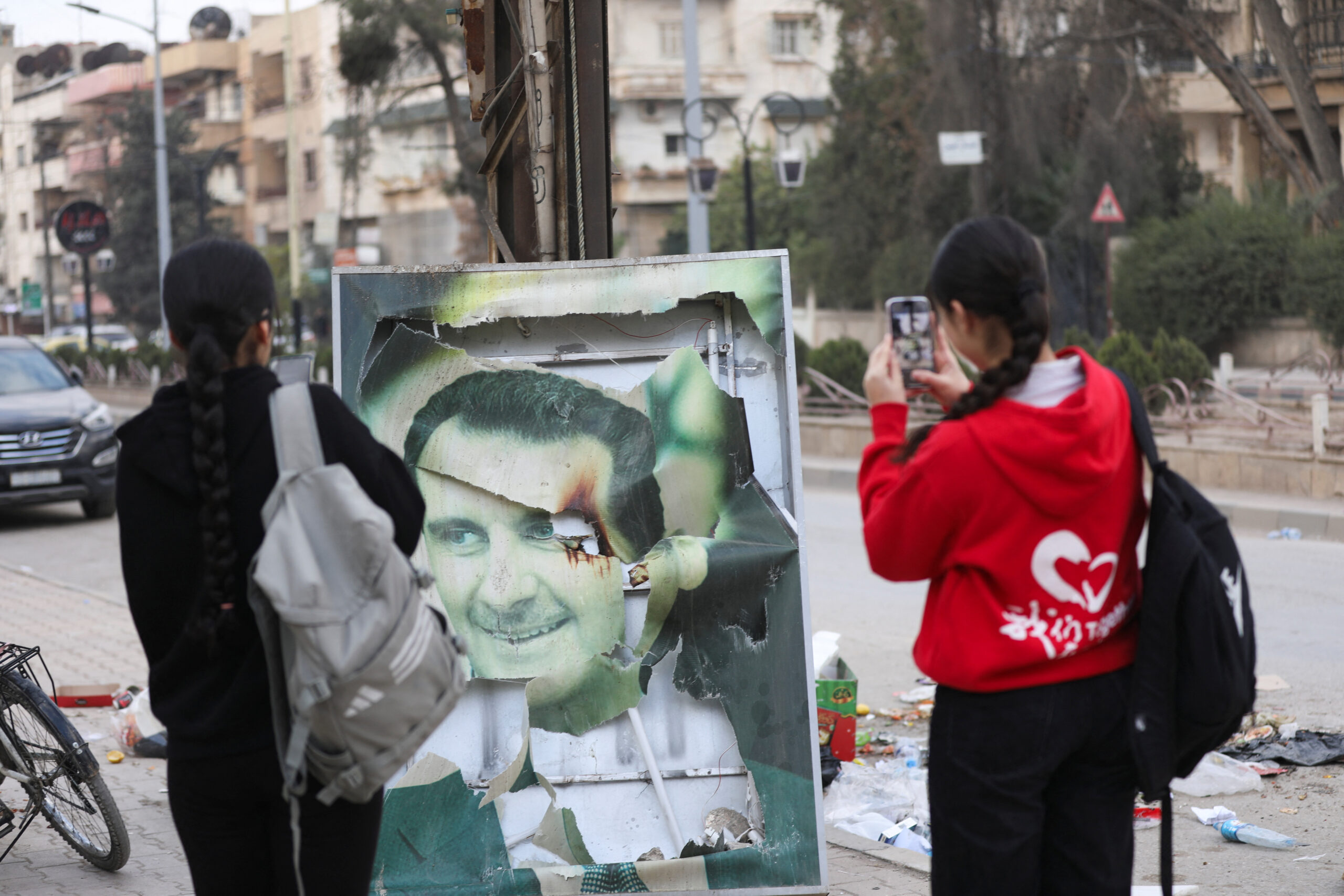

The next day in the Middle East after the status quo change in Syria
Bashar al-Assad fell because of Israel’s war, which by weakening Hezbollah, limited the influence and power of Shiite Iran, changing the balance in the Middle East with fatal consequences for Syria, but also because of Russia’s invasion of Ukraine.
The free kick came from Turkey. Seeing Assad powerless, it supported the Islamist rebels and regained its influence in Syria by proxy, implementing part of the neo-Ottoman vision of the self-styled “sultan”, Recep Tayyip Erdogan.
But the dust from all these reshuffles in the Middle East has not yet settled. Israel is already taking steps to neutralize the jihadist threat on its borders: It has entered the buffer zone inside the Golan Heights and is bombing Damascus.
Turkey must decide what to do with the Kurds of Syria, whether Iran will retreat to its borders and abandon threats to change its nuclear doctrine, if it does not want to face Israel and Trump, and how Russia will manage the termination of the war in Ukraine.
Finally, the big question remains what exactly Donald Trump will do when he takes office on January 20, 2025, as he has made it clear that he does not want any involvement in the country, which has been interpreted as an intention to withdraw American troops with whatever it means both for the US’s Kurdish allies and for the further strengthening of Turkey.
